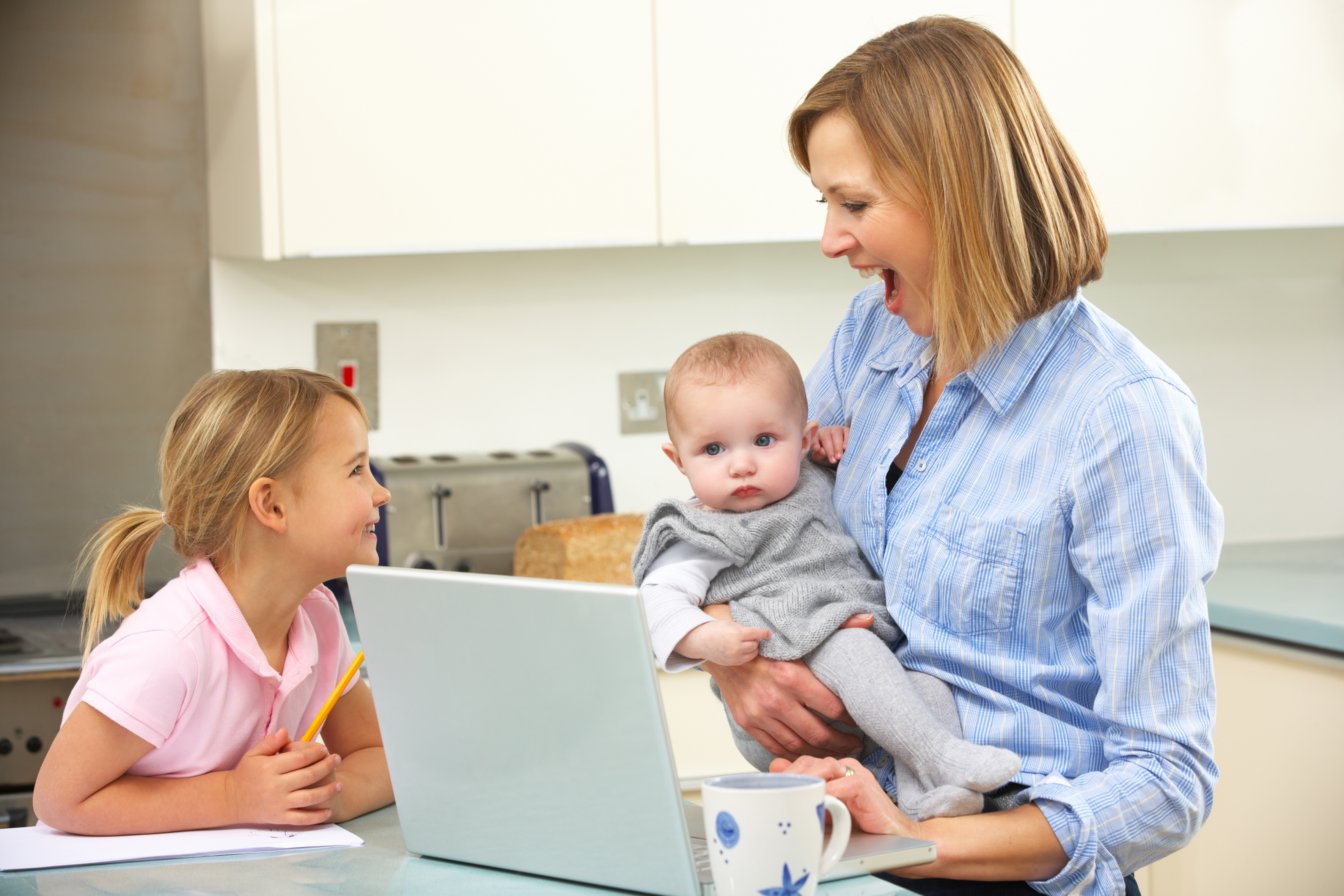Household Bills
Mothers paying a heavier price for lockdown

Lockdown is affecting how mothers and fathers divide responsibilities for paid work, housework and childcare.
School closures, job losses, furloughing, and a shift to working from home are all affecting how parents spend their time.
But a study by the Institute for Fiscal Studies (IFS) and the UCL Institute of Education found that among those doing paid work at home, mothers are more likely than fathers to be spending their work hours simultaneously trying to care for children.
Mothers are also more likely than fathers to have left paid work, or had their hours reduced, since February.
Researchers designed an online survey, funded by the Nuffield Foundation, to capture how 3,500 families with two opposite-gender parents are sharing paid work and domestic responsibilities since lockdown began in March.
Fathers face fewer interruptions
It concluded that mothers in two-parent households are only doing, on average, a third of the uninterrupted paid-work hours of fathers. Before lockdown, mothers did around 60% of the uninterrupted work hours of fathers.
Mothers are far more likely to be interrupted during paid working hours than fathers. Almost half (47%) of mothers’ hours spent doing paid work are split between that and other activities such as childcare, compared with less than a one-third (30%) of fathers’ paid working hours.
The IFS says this sharp reduction in the time that mothers are spending dedicated to paid work risks lasting harm to their careers when the lockdown is lifted.
The study found mothers are looking after children during an average of 10.3 hours of the day (2.3 hours more than fathers), and are doing 1.7 more hours housework than fathers.
However, it also found that fathers are now taking on a greater share of household responsibilities than they were before the crisis.
Working hours
Mothers are 23% more likely than fathers to have lost their jobs (temporarily or permanently) during the current crisis. Among those working in February 2020, mothers are now 9 percentage points less likely to still be in paid work than fathers.
Mothers who are still doing paid work have reduced their paid working hours substantially and by more than fathers. Prior to the crisis, working mothers did paid work in 6.3 hours on a weekday on average; this has fallen by more than a fifth to 4.9 hours.
Working fathers’ hours have also fallen, but by proportionally less, from 8.6 hours before the crisis to 7.2 hours now.
Mothers doing more childcare and more housework
Lucy Kraftman, a research economist at IFS, says: “Mothers are doing, on average, more childcare and more housework than fathers who have the same work arrangements, be that not working, working from home or working outside the home.
“The only set of households where we see mothers and fathers sharing childcare and housework equally are those in which both parents were previously working but the father has now stopped working for pay while the mother is still in paid work.
“However, mothers in these households are doing paid work during an average of five hours a day in addition to doing the same amount of domestic work as their partner. The vast increase in the amount of childcare that mothers are doing under lockdown, which many are juggling alongside paid work, is likely to put a strain on their well-being.”
Flexible working arrangements
A similar study by Fidelity International found that Covid-19 may lead to more parents seeking flexible working arrangements to share childcare.
Currently, there is still a clear divide between genders when it comes to early childcare responsibilities. A quarter of women (25%) plan to return to work full-time after having children, compared to more than half of men (51%), according to Fidelity.
Maike Currie, investment director of Fidelity International, says: “While no one has a crystal ball to future gaze what the state of childcare will be after the lockdown period, these last few months will have brought a fresh perspective.
“Parents may well take another look at how they work and its effect on the family – the time spent commuting, long office hours and parents and children being metaphorical ships in the night during the week. There may also be no choice: recent events mean that several private nurseries are under threat, which could mean fewer places available.”